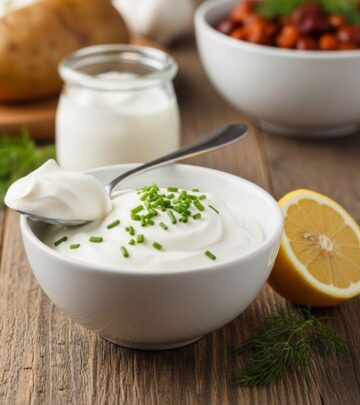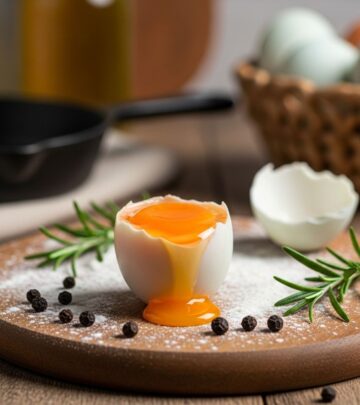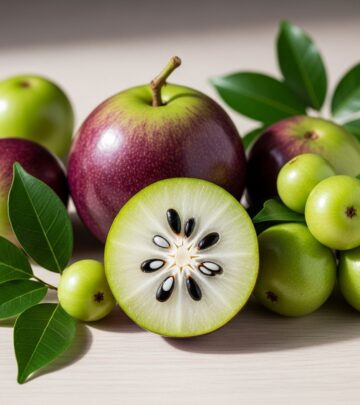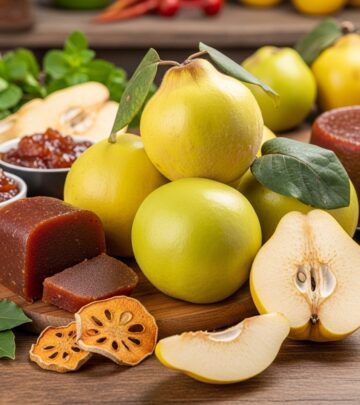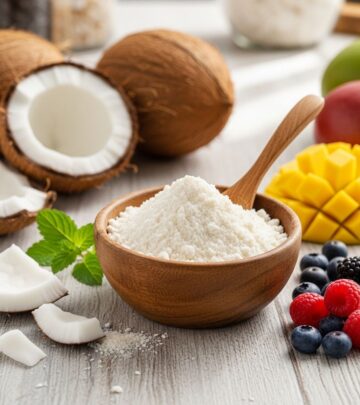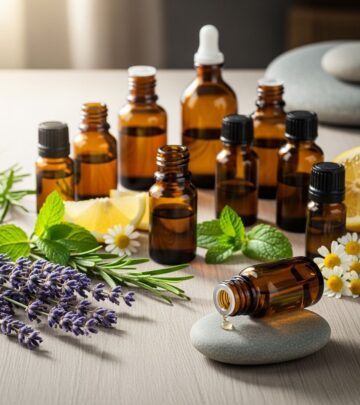17 Effective Home Remedies for Phlegm Relief
Spices, steam, and kitchen staples team up to clear airways and ease breathing.
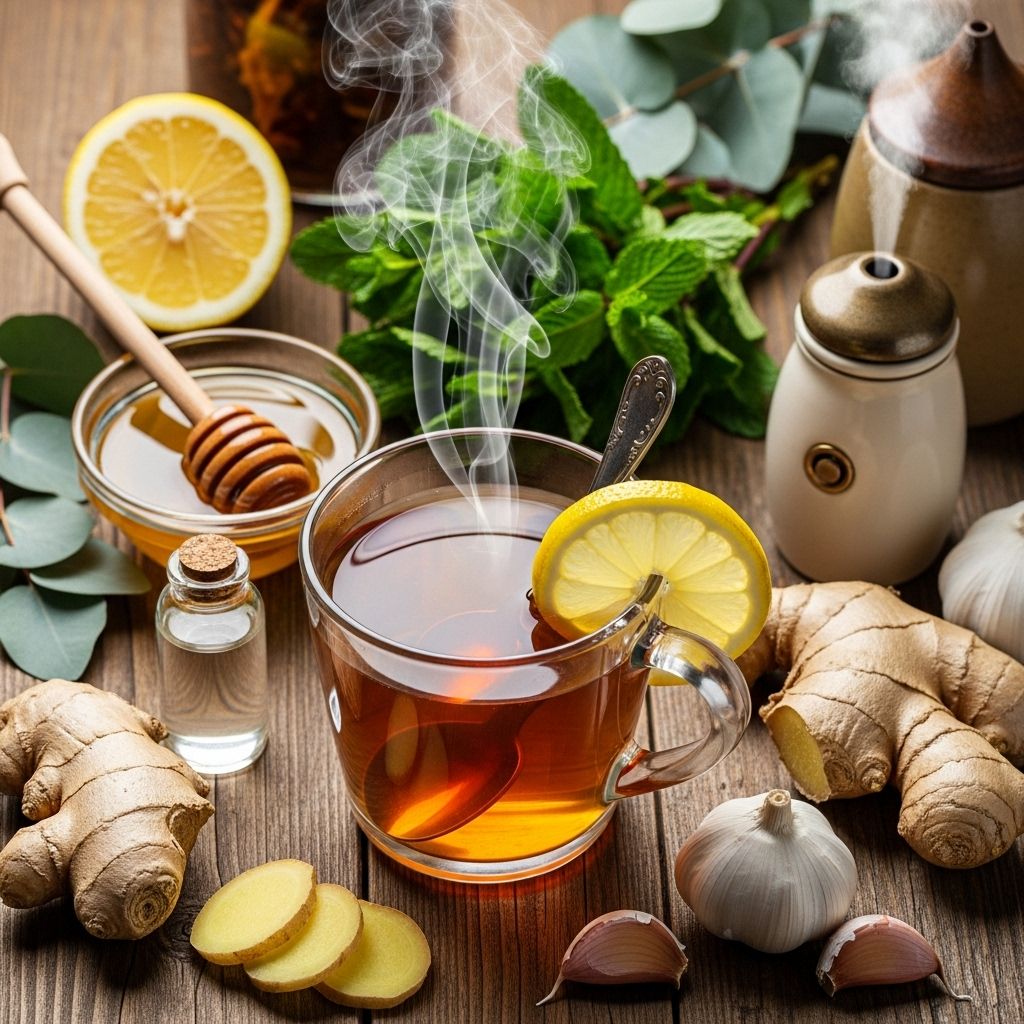
Excess phlegm and mucus can turn minor respiratory discomfort into a lingering nuisance. Whether it’s from a cold, flu, allergies, or pollution, an overproduction of phlegm can cause coughing, congestion, throat irritation, and more. Thankfully, a variety of natural home remedies and lifestyle adjustments exist to help loosen, thin, and expel phlegm from your respiratory system, offering relief and speeding recovery. Here, we discuss signs and symptoms of phlegm build-up, 17 proven home remedies, supportive lifestyle tips, and frequently asked questions to empower you with the knowledge you need for comfortable breathing.
Signs and Symptoms of Excess Phlegm
Recognizing the symptoms of excess phlegm is the first step toward effective management. Common signs include:
- Coughing up mucus and phlegm
- Runny nose
- Nasal or chest congestion
- Sinus headache
- Sore and congested throat
- Shortness of breath
Most cases are related to viral or bacterial infections, allergies, or environmental irritants. Early intervention can help prevent complications and discomfort.
How to Get Rid of Phlegm Naturally: 17 Home Remedies
Multiple ingredients and habits can help relieve phlegm, many supported by scientific research and centuries of traditional use. Below are the most effective approaches:
1. Apple Cider Vinegar
- You will need: 1 tbsp apple cider vinegar, 1 cup warm water.
- Mix vinegar into water and drink once daily or gargle for relief.
- Why it works: Its acetic acid offers mild antimicrobial effects, helping fight the microbes that cause a phlegmy throat.
2. Essential Oils
- You will need: Eucalyptus, peppermint, or tea tree oil.
- Add a few drops to hot water, inhale steam, or use in a diffuser.
- Why it works: Oils like eucalyptus contain eucalyptol, a natural decongestant and antimicrobial.
3. Salt Water Gargle
- You will need: 1/2 tsp salt, 1 cup warm water.
- Gargle with saltwater for 30 seconds, repeating 3–4 times daily.
- Why it works: Saltwater soothes irritation and reduces mucus production by eliminating germs.
4. Ginger
- You will need: 1–2 inches fresh ginger, 1 cup water.
- Simmer ginger in water, strain, and sip as a tea.
- Why it works: Ginger’s polyphenols and flavonoids offer antiviral, antibacterial, and natural expectorant properties to loosen mucus.
5. Garlic
- You will need: 4–5 fresh garlic cloves, 1 cup warm water.
- Crush cloves, consume directly with water, or add to meals. Chewing raw garlic is effective.
- Do this 3–4 times a day.
- Why it works: Garlic’s compound allicin acts as a natural expectorant and powerful antimicrobial, helping clear airways and fight infection.
6. Turmeric and Apple Cider Vinegar
- You will need: 1 tsp turmeric, 1 tbsp apple cider vinegar, 1 tsp honey, 1 glass warm water.
- Mix all, stir well, and drink or gargle 2–3 times a day.
- Why it works: Curcumin in turmeric acts as an antiseptic and anti-inflammatory agent, helping to loosen and expel phlegm.
7. Humidifier/Vaporizer
- Use a humidifier in your room, especially overnight.
- Why it works: Moist air prevents drying of sinus passages and helps thin mucus, making it easier to expel.
8. Honey
- You will need: 1–2 tbsp raw honey.
- Add to tea, warm water, or consume plain.
- Why it works: Honey soothes the throat, offers mild antibacterial properties, and suppresses coughing to relieve symptoms.
9. Onion
- You will need: 1 small onion.
- Chop and consume raw or add to meals, alone or with other phlegm-fighting foods.
- Why it works: Onion’s quercetin and sulfur compounds help loosen mucus and boost immunity.
10. Lemon Juice
- You will need: 1 lemon, 1 cup warm water.
- Squeeze juice into water, stir, and drink.
- Why it works: High vitamin C supports immune function and the acidity helps break down mucus.
11. Herbal Teas
- Try teas with peppermint, licorice, chamomile, thyme, or marshmallow root.
- Steep, strain, and sip several times daily.
- Why it works: Herbal teas hydrate and provide anti-inflammatory properties that can reduce phlegm and soothe airways.
12. Cayenne Pepper
- You will need: 1/4 tsp cayenne pepper, 2 tbsp water, 1 tbsp honey.
- Mix and consume twice daily.
- Why it works: Cayenne’s capsaicin is a natural decongestant and has antibacterial properties to combat infection and thin mucus.
13. Jaggery
- You will need: A piece of jaggery, 1/2 onion.
- Mix crushed onion with jaggery and chew 2–3 times daily.
- Why it works: Jaggery acts as an expectorant, expelling particles from the lungs and reducing respiratory tract inflammation.
14. Pineapple Juice
- You will need: 1 cup fresh pineapple juice.
- Drink juice once or twice daily.
- Why it works: Bromelain, an enzyme in pineapple, has natural mucus-thinning and anti-inflammatory effects.
15. Oil Pulling
- You will need: 1–2 tbsp coconut or sesame oil.
- Swish oil in your mouth for 10–20 minutes, spit out, and rinse.
- Why it works: Traditionally used in Ayurvedic medicine, oil pulling may reduce oral bacteria and help keep mucus in check.
16. Orange Juice
- You will need: 1 cup orange juice.
- Drink daily for vitamin C boost and hydration.
- Why it works: Helps strengthen the immune system and may assist mucus clearance.
17. Soups
- Opt for broths with chicken, vegetables, garlic, ginger, and spices.
- Consume warm soup several times daily.
- Why it works: Hot liquids thin mucus, while added ingredients enhance natural relief and comfort.
Supporting Lifestyle Tips for Mucus Relief
- Keep air moist: Use a humidifier, take steamy showers, and breathe in warm, moist air.
- Stay hydrated: Drink water, herbal teas, and clear juices throughout the day to thin phlegm.
- Apply warm compresses: Place a warm, wet washcloth over your nose and cheeks for quick sinus relief.
- Avoid irritants: Minimize exposure to smoke, pollution, and chemical fumes.
- Keep allergies in check: Treat allergies proactively to prevent chronic phlegm production.
- Monitor food reactions: Identify and avoid foods that trigger excess mucus for you personally.
Frequently Asked Questions (FAQs)
Q1: What causes excess phlegm build-up?
A: Common causes include viral and bacterial infections (like colds and flu), seasonal allergies, environmental irritants such as pollution or smoke, and certain food reactions.
Q2: When should I see a doctor for phlegm?
A: Seek medical attention if phlegm persists longer than three weeks, is green, yellow, or bloody, is accompanied by high fever or chest pain, or affects breathing.
Q3: Do these remedies work for children and the elderly?
A: Most listed remedies are safe for older children and adults. For young children or the elderly, consult a healthcare professional before using remedies that involve herbs, essential oils, or spicy foods.
Q4: Will drinking milk increase phlegm?
A: Milk does not cause mucus, but in some individuals it may thicken the sensation of phlegm. Opt for non-dairy alternatives if you notice worsening symptoms after dairy.
Q5: Can I use multiple remedies together?
A: Yes, combining hydration, steam therapy, dietary changes, and topical relief can maximize results, unless instructed otherwise by your healthcare provider.
Q6: Are saltwater gargles and steam inhalation safe?
A: Generally, both are safe when performed as directed. Ensure water isn’t too hot to avoid burns. Children should be supervised during steam inhalation.
Quick Comparison Table: Key Remedies for Phlegm
| Remedy | Main Active Ingredient | Benefits |
|---|---|---|
| Ginger Tea | Gingerol | Expectorant, anti-inflammatory, antiviral |
| Saltwater Gargle | Salt | Reduces inflammation, kills germs |
| Apple Cider Vinegar | Acetic acid | Mild antimicrobial, mucus-thinning |
| Honey | Natural sugars and enzymes | Soothes throat, antimicrobial |
| Eucalyptus Oil Steam | Eucalyptol | Decongestant, antimicrobial |
| Turmeric Tea | Curcumin | Antiseptic, anti-inflammatory |
| Cayenne Pepper | Capsaicin | Decongestant, stimulates clearance |
References
- StyleCraze: How To Get Rid Of Phlegm Naturally: 17 Home Remedies
- ToneOp Care: 8 Natural And Effective Remedies For Cough With Phlegm
- MedicalNewsToday: Effective ways to get rid of phlegm and mucus
Takeaway
While excess phlegm can be uncomfortable, these natural remedies and lifestyle tips offer reliable relief in most cases. If symptoms persist or worsen, consult a medical professional to rule out underlying illness. Adopt these strategies to breathe easier, sleep better, and support overall respiratory health.
References
- https://www.stylecraze.com/articles/effective-home-remedies-for-phlegm/
- https://toneop.care/blogs/cough-with-phlegm-remedy
- https://www.medicalnewstoday.com/articles/321134
- https://www.stylecraze.com/articles/health-and-wellness/home-remedies-tips/
- https://health.clevelandclinic.org/mucus-and-phlegm-what-to-do-if-you-have-too-much
- https://www.businessinsider.com/guides/health/conditions-symptoms/how-to-stop-coughing
Read full bio of Sneha Tete

